QuestionHello, I will be meeting a six yr. old macaw in a few days that is available for sale. It is his original owners who no longer have time for him and keep him now in a garage. I have had a cockatoo a decade ago but have never had contact with a macaw. I know how to treat a parrot very very well and all the care basics, but can you advise me on 2 things. first: what are the behavioral differences between a macaw and cockatoo? and what should I look for when I meet him to see if we are a good match? The owner said he is half blue/gold and I think half generals. Any advice is welcome and very much appreciated. I want to make a good decision both for the bird and my family. thanks again, jeannette......p.s. since I do not know how to make sure my server doesn't block your reply, here is my email talktome@wildblue.net
Answer How exciting it must be to be anticipating a new addition to your family like this. At six years old you can look forward to probably another 50 years (or more) of companionship. Of course that means 50 years of having all the responsibilities of a toddler at home too (but it's so worth it).
The most important thing before bringing a bird home, just like before bringing a new baby home, is to establish a doctor. No matter what - that's really the first thing you have to do. Not only find a vet who sees and treats macaws, but make the initial appointment for a 'well bird visit'.
There's nothing worse than having your macaw for all of a week and suddenly realizing something's wrong. Trying to find emergency care on a night or weekend when you're not established as a patient can be impossible AND cost a fortune.
That said, when it comes to selecting your macaw, trust your heart.
You want to look for a bird that seems curious, interested and better yet, anxious to come out and step up.
You don't want a bird that is very obviously frightened, cowering, trying to charge and bite. Though those birds can be worked with, it takes a lot of patience and time.
Take a look here for even more, plus pictures
(copy and paste into your address bar) www.4AnimalCare.org
-------- click on birds --------

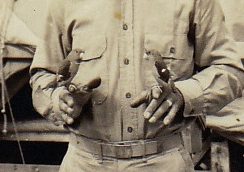 ID Birds
Question
Panama Birds
My uncle served in Panama in 1941
ID Birds
Question
Panama Birds
My uncle served in Panama in 1941
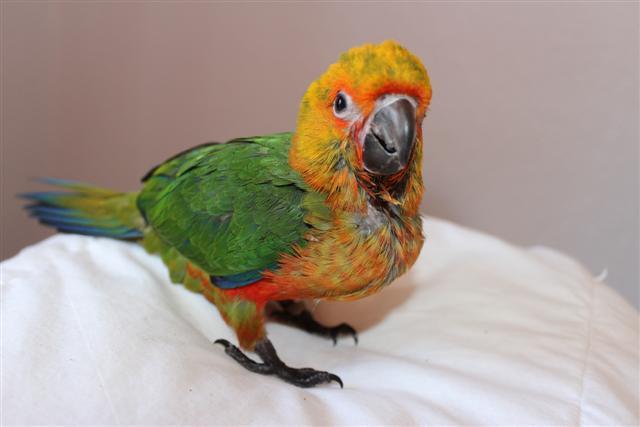 Jenday Conure Weaning?
Question
Castor the Conure
Hi
I have a 9 week o
Jenday Conure Weaning?
Question
Castor the Conure
Hi
I have a 9 week o
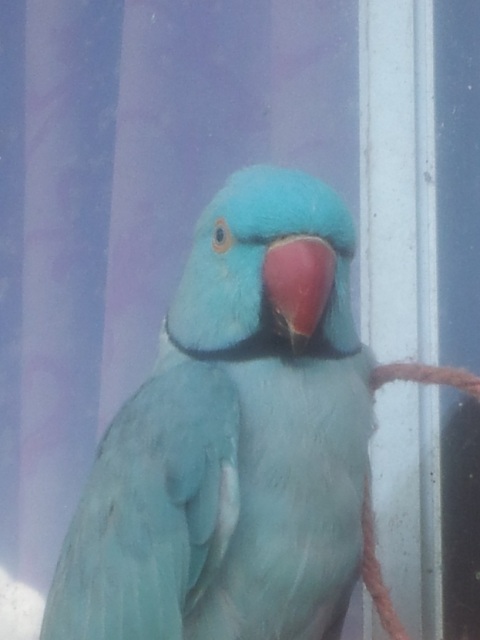 RE: Indian Ringneck probems
Question
Indy our Ringneck
Thank you for your he
RE: Indian Ringneck probems
Question
Indy our Ringneck
Thank you for your he
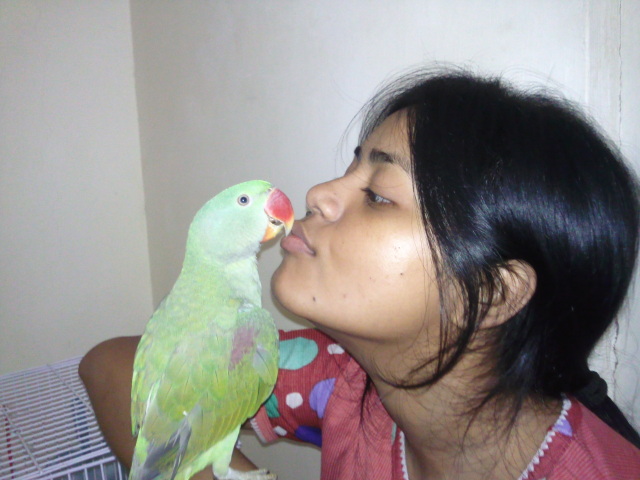 can i give my parrot chole(chana) called in hindi
Question
my little chaddi alexa
dear sir,
can give chan
can i give my parrot chole(chana) called in hindi
Question
my little chaddi alexa
dear sir,
can give chan
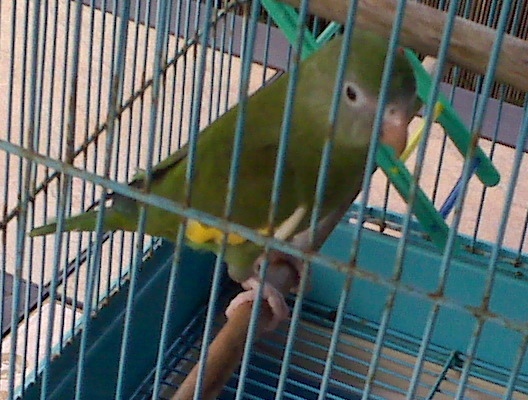 What type of parrot is this?
Question
Friendly bird
A week ago ths small parrot flew
What type of parrot is this?
Question
Friendly bird
A week ago ths small parrot flew